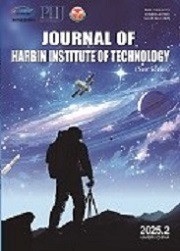| Author Name | Affiliation | | Yang Liu | School of Transportation, Southeast University, Nanjing 210096, China | | Yanjie Ji | School of Transportation, Southeast University, Nanjing 210096, China | | Keyu Chen | Guangzhou Urban Planning & Design Survey Research Institute, Guangzhou 510060, China | | Xinyi Qi | School of Transportation, Southeast University, Nanjing 210096, China |
|
| Abstract: |
| In order to accurately predict bus travel time, a hybrid model based on combining wavelet transform technique with support vector regression (WT-SVR) model is employed. In this model, wavelet decomposition is used to extract important information of data at different levels and enhances the forecasting ability of the model. After wavelet transform different components are forecasted by their corresponding SVR predictors. The final prediction result is obtained by the summation of the predicted results for each component. The proposed hybrid model is examined by the data of bus route No.550 in Nanjing, China. The performance of WT-SVR model is evaluated by mean absolute error (MAE), mean absolute percent error (MAPE) and relative mean square error (RMSE), and also compared to regular SVR and ANN models. The results show that the prediction method based on wavelet transform and SVR has better tracking ability and dynamic behavior than regular SVR and ANN models. The forecasting performance is remarkably improved to obtain within 6% MAPE for testing section I and 8% MAPE for testing section II, which proves that the suggested approach is feasible and applicable in bus travel time prediction. |
| Key words: intelligent transportation bus travel time prediction wavelet transform support vector regression hybrid model |
| DOI:10.11916/j.issn.1005-9113.18025 |
| Clc Number:U12 |
| Fund: |
|
| Descriptions in Chinese: |
| 基于小波变换与支持向量回归的公交行程时间预测 刘 阳1,季彦婕1,陈科宇2,戚心怡1 (1.东南大学 交通学院,南京 210096; 2.广州市城市规划勘测设计研究院,广州 510060) 创新点说明:1)综合了小波变换时域频分与支持向量回归处理非线性优化问题的优点; 2)提出了更加适用于轻量级数据样本的公交行程时间预测方法。 研究目的: 基于公交历史与实时运行数据,采用混合模型进行公交行程时间预测;采用小波变换与支持向量回归相结合的模型,以期得到更高的预测精度,来增加公交出行信息(如公交到站时间)发布的可靠性,优化公交运营管理,吸引更多的乘客选择公交出行。 研究方法: 1)小波变换与支持向量回归混合模型:利用小波变换将历史和实时公交数据分解为在不同水平下的几个部分,每一个部分都分别使用支持向量回归模型进行预测; 2)案例分析:选取南京市550路公交车线路中的两段(桥北客运站到农贸中心站)作为实验的测试集,对模型进行检验。 研究结果: 1)提出的WT-SVR混合模型可以捕捉到公交行程时间的动态波动,并对两个区域的拟合度都较高; 2)与传统BP神经网络和支持向量回归模型相比,WT-SVR混合模型的预测误差更小; 3)EMAP值显示混合模型在公交车行程时间预测方面相当准确,具有可靠性与可行性。 结论: 1)在两个不同的测试区间本文所提出的WT-SVR模型表现都显著优于常规的SVR和ANN模型,表明模型具有可移植性; 2)由于小波变换可以获取不同数据规模下的公交行程时间的波动性,因此混合模型的预测精度比SVR和ANN高; 3)模型可以很大程度上提高公交车行程时间的预测性能,有助于提高服务水平与公交信息发布的可靠性。 关键词:智能交通;公交行程时间预测;小波变换;支持向量回归;混合模型 |




